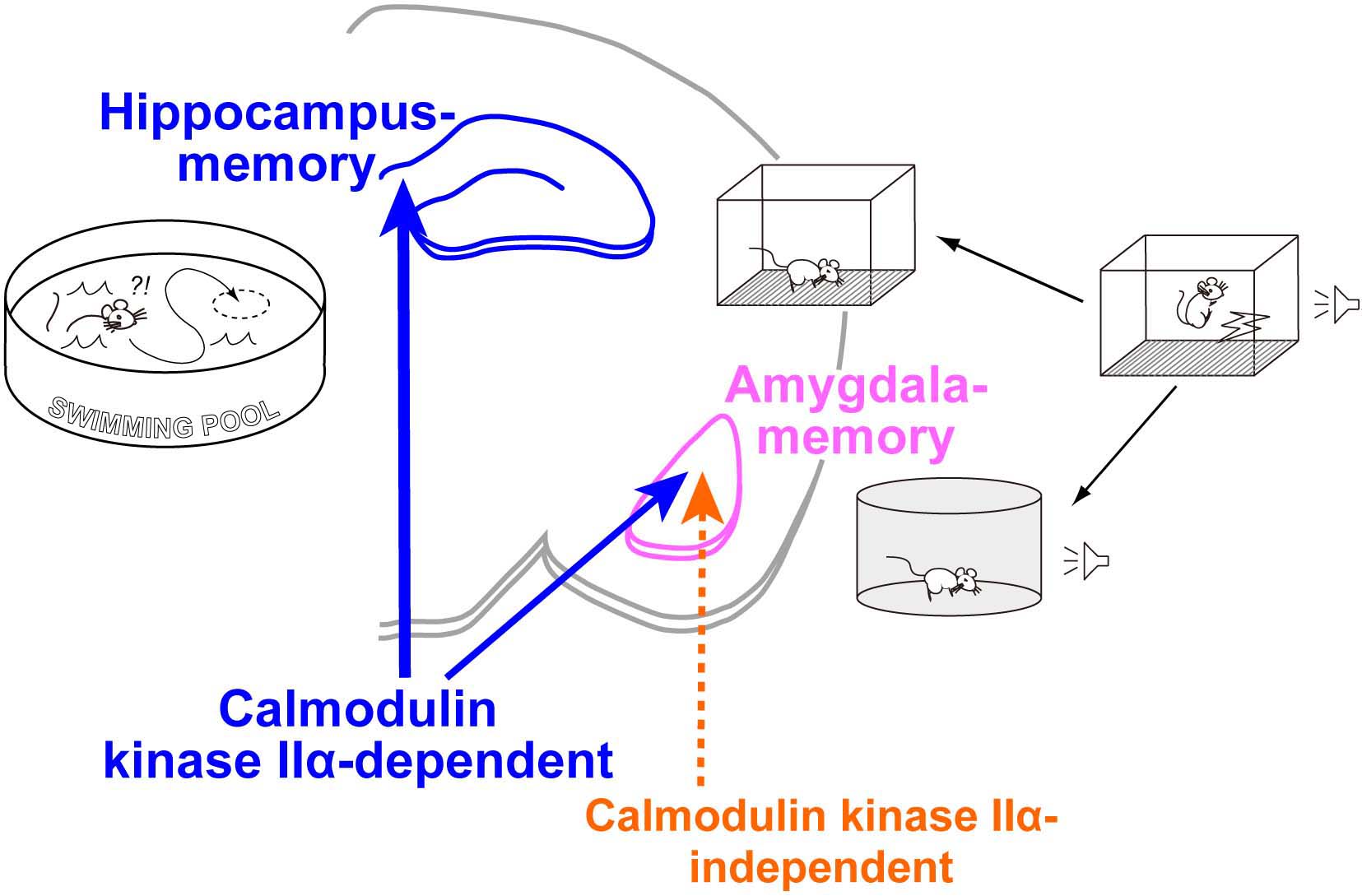Differential involvement of kinase activity of Ca2+/calmodulin-dependent protein kinase IIα in hippocampus- and amygdala-dependent memory revealed by kinase-dead knock-in mouse
Studying molecular mechanisms of learning and memory is important to confront memory-deficient and abnormal memory-associated disorders such as post-traumatic stress disorder (PTSD). An enzyme called Ca2+/calmodulin-dependent protein kinase IIα (CaMKIIα) that is abundant in the brain and phosphorylates important proteins has a key role in such mechanisms. On the other hand, there exist several types of memory that are controlled by different brain regions. Previous studies have shown that this kinase is important in hippocampus-dependent memory, but its involvement in other types memory is still not clear.
Here we used our genetically engineered mouse that lacks kinase activity but retains protein expression of CaMKIIα, and examined hippocampus-dependent space/context-related memory and amygdala-dependent fear-related memory. These mice could not remember hippocampus-dependent spatial relation even after repeated training. On the other hand, these mice could remember sensory stimuli that are related to fearful experience, which is amygdala-dependent, although to a much lesser extent than in normal mice. Besides, these mice could not remember the environment (context) where they received fearful experience, which is both hippocampus- and amygdala-dependent, after one-trial training. However, after multi-trial training, they became fearful even when they were placed in a different environment, which is called "fear generalization".
These results indicate that molecular mechanisms of learning and memory controlled by different brain regions are somewhat different: Kinase activity of CaMKIIα is indispensable for hippocampus-dependent memory, while it is important but not necessarily indispensable for amygdala-dependent memory (See the Figure). This study also indicates that kinase activity of CaMKIIα may be important in suppressing "fear generalization". Further studies in these mice will lead to the understanding and therapeutics of PTSD and other abnormal fear memory-associated disorders.

Collaborative Researcher
Yuchio Yanagawa
Gunma University Graduate School of Medicine, Department of Genetics and Behavioral Neuroscience
Funding
KAKENHI (Grant-in-Aid for Scientific Research from Japan Society for the Promotion of Science)
Relevant Department
<Division of Neural Signaling>
Keiji Imoto
Yoko Yamagata
Release Source
Differential involvement of kinase activity of Ca2+/calmodulin-dependent protein kinase IIα in hippocampus- and amygdala-dependent memory revealed by kinase-dead knock-in mouse
Yoko Yamagata1,2, Yuchio Yanagawa3 and Keiji Imoto1,2
1Division of Neural Signaling, National Institute for Physiological Sciences, and 2SOKENDAI (The Graduate University for Advanced Studies), Okazaki 444-8787, Japan; 3Department of Genetic and Behavioral Neuroscience, Gunma University Graduate School of Medicine, Maebashi, 371-8511, Japan.
eNeuro 7 August 2018, 5 (4) ENEURO.0133-18.2018
DOI: https://doi.org/10.1523/ENEURO.0133-18.2018
http://www.eneuro.org/content/5/4/ENEURO.0133-18.2018

